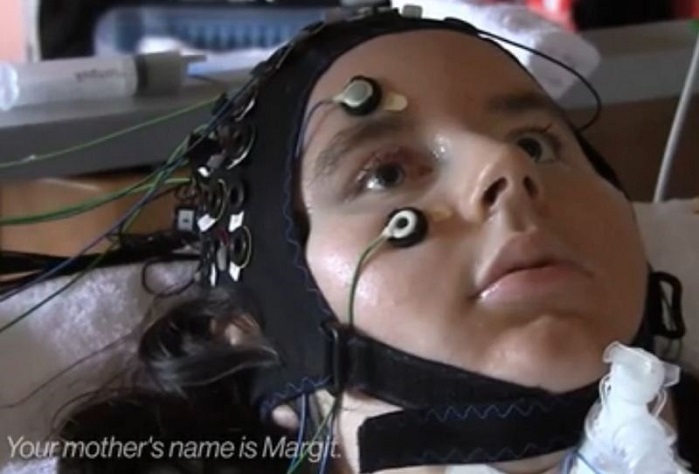Four completely paralyzed patients were able to communicate with researchers thanks to a newly developed brain-computer interface, according to a study published Tuesday in PLOS Biology.
With the device, the European researchers watched the patients’ brain electrical activity and blood flow to determine their answers to “yes” and “no” questions, Technology Review reports. The four patients had Lou Gehrig’s disease, or ALS, and were completely paralyzed and unable to talk or move their eyes, a condition often referred to as complete locked-in syndrome, according to the report.
The new computer interface, a non-invasive device that fits on the head like a swimming cap, is providing hope that families soon will be able to communicate with loved ones who are completely paralyzed. The research also indicates that these patients, sometimes wrongly labeled “vegetables,” can hear, understand and react to the world around them.
Here’s more from Reuters:
Researchers leading this trial said the brain-computer interface (BCI), which is non-invasive, could transform the lives of such patients, allowing them to express feelings and opinion to their loved ones and carers.
SUPPORT LIFENEWS! If you like this pro-life article, please help LifeNews.com with a donation!
Counter to expectations, the researchers said, the patients reported being “happy” despite their condition.
“The striking results overturn my own theory that people with complete locked-in syndrome are not capable of communication,” said Niels Birbaumer, a neuroscientist at Switzerland’s Wyss Center for Bio and Neuroengineering, who co-led the study.
The researchers said they asked the patients questions, such as, “Your husband’s name is Joachim?”, “Are you happy?” and “Paris is the capital of Germany?” and watched their brain patterns for a “yes” or “no” response.
Three of the four patients also replied “yes” to the statement “I love to live” and the question “Are you happy?”; the fourth patient was not asked because her family said they were afraid she was struggling emotionally, according to the report.
Birbaumer told Technology Review that the patients’ families felt “enormous” relief after learning they could communicate with their loved ones. In some cases, it had been four years since the patient had been able to communicate with their family in any way. He said the families also learned that their loved ones still wanted to be alive and on ventilators.
Fellow researcher John Donoghue said the research team plans to continue working on the technology so that it one day can be available for people who are paralyzed.
The findings especially are significant for life and death situations. Society also often makes wrong assumptions about people’s quality of life based on their abilities, sometimes leading others to cause the person’s death by abortion or euthanasia. Despite complete paralysis, the patients in the new study surprised researchers by saying they were happy and wanted to live.
Sometimes family members disagree about whether to remove a loved one from a ventilator because of their so-called “quality of life.” Other times hospitals urge families to remove life support in such cases. Hopefully, this new research not only will help families to communicate better but also save lives that otherwise might have been destroyed.








